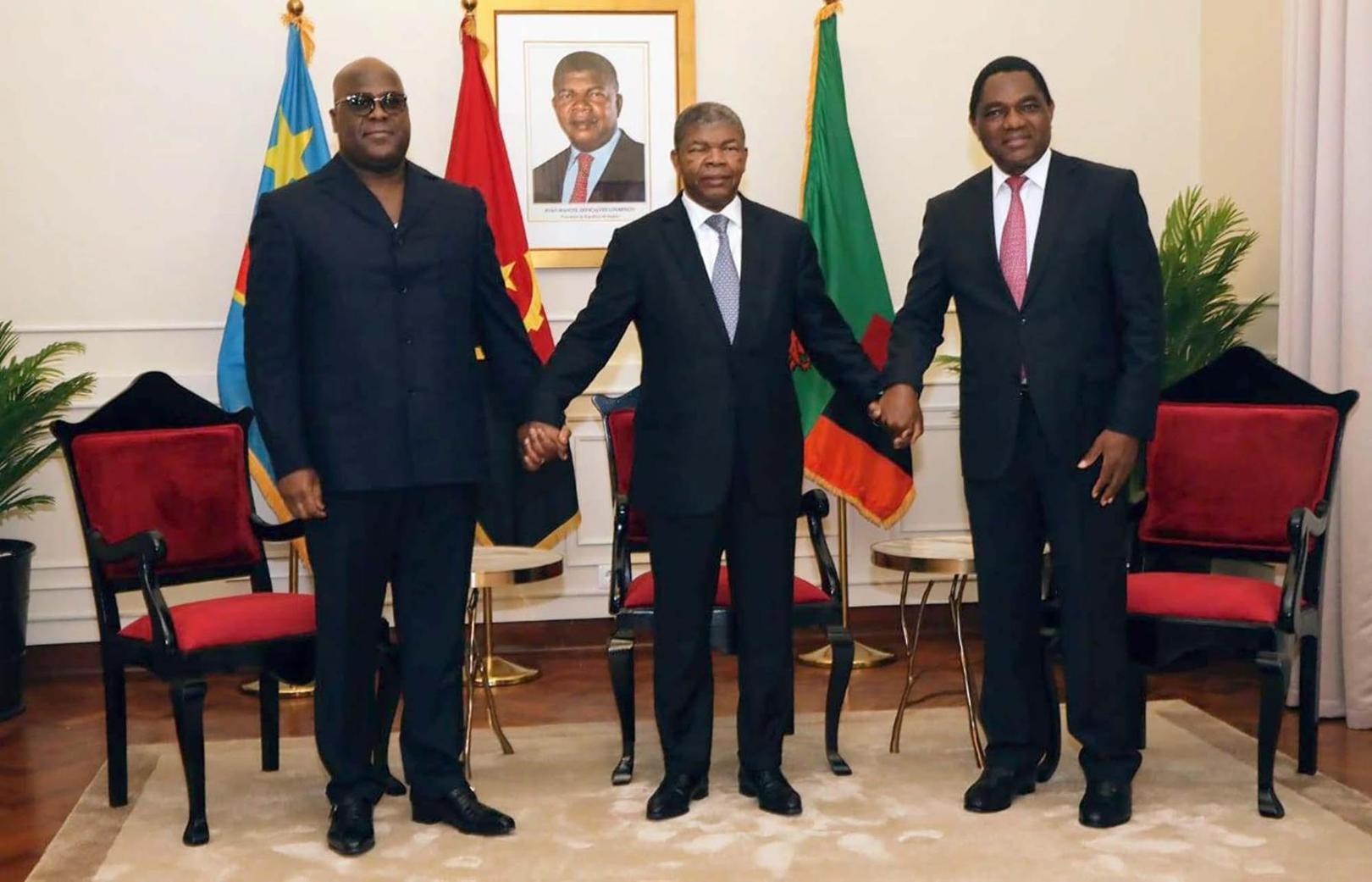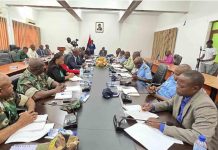Africa-Press – Angola. Angola, Zambia and the Democratic Republic of Congo (DRC) are connected, as of Tuesday, via fiber optics, as part of the transfer of management of the Lobito Corridor, for 30 years, to the management consortium.
The inauguration of the connection took place in the city of Lobito, Benguela, by video call, in a connection made by the Minister of Telecommunications, Information Technologies and Social Communication, Mário Oliveira, who, on the occasion, in a brief conversation, interacted with his counterparts in Zambia and DR Congo.
The inaugural act was witnessed by the Heads of State of Angola, João Lourenço, of Zambia, Hakainde Hichilema, and of RD Congo, Félix Tshisekedi, who are in the city of Lobito to witness the transfer of the concession of rail and logistics services to support the Corridor from Lobito to the Lobito Atlantic Railway consortium.
The terrestrial fiber connection with the DRC is provided by the operators Angola Telecom and Liquid DRC, through two point-to-point circuits, connecting Luanda and Kinshasa, over a length of 1,150 kilometers with a capacity of 40Gbps, and between Luanda and Cabinda (via the municipality of Nóqui – province of Zaire), allowing access to voice and data services to national and foreign users.
The expansion plan for the terrestrial fiber optic network plans to reach optical channels of up to 100Gbps each.
The connection between Angola and Zambia is ensured by the operators Unitel and MTN, in a point-to-point connection with the border of Zambia, in the Karipande area (Moxico) to the PoP station of the company Angola Cables in Luanda, with a extension of approximately 2,000 km.
The network is a DWDM system with 10Gbps optical (OCh) channels.
The completion of these connections constitutes a historic moment for the three countries, in particular for the Southern African Development Community (SADC), as it allows countries bordering Zambia and the DRC to have regular access to communications and communication services. electronically via Angola.
For More News And Analysis About Angola Follow Africa-Press






